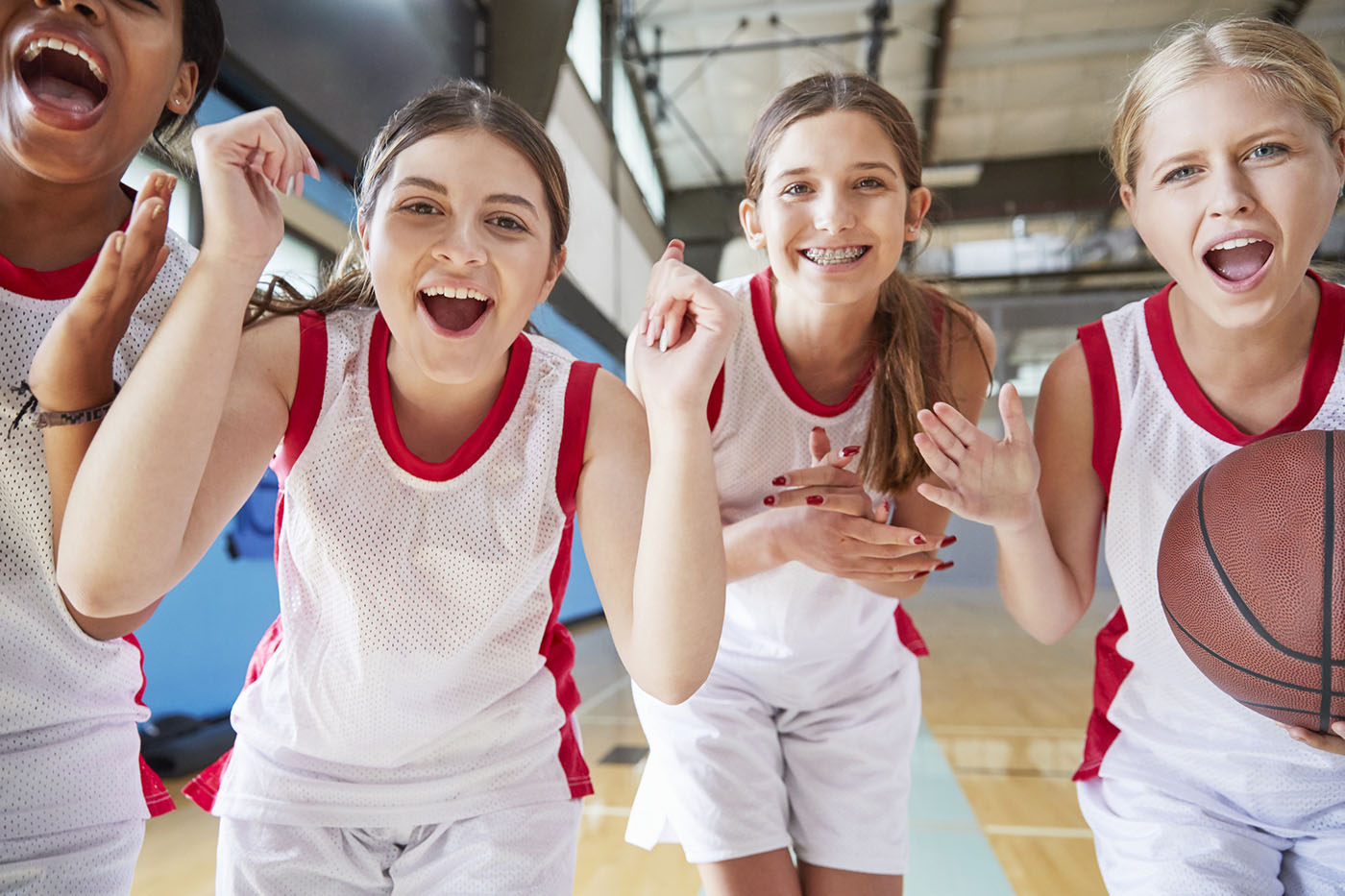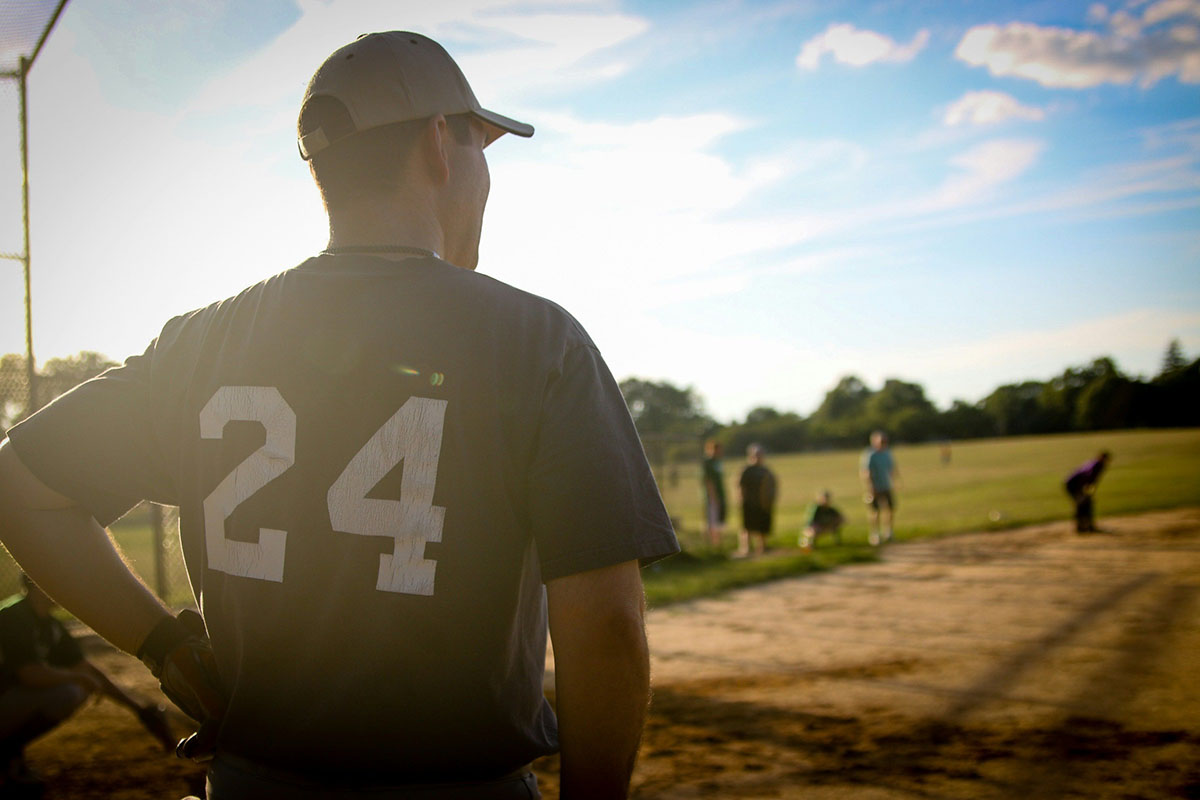When we think of sports leadership, we typically think of game strategy and motivational speeches—at…

Team Sports vs Individual Sports: How They (and You!) Can Support Your Teen’s Mental Health
Teen mental health in the US is impacted by a number of factors—parental influence, household income, geographic location, social influence, and more. And in the 2020s, it’s also been impacted by the Covid-19 pandemic, a highly-divisive political environment, and the ever-present threat of school violence.
A teen mental health crisis has been brewing for some time. It shows no signs of slowing down.
But now that teens are back to school and in-person, there is some heartening news—a new study confirms what we’ve long suspected: playing sports has a net-positive impact on teen mental health.1
And while there are some caveats to the study’s findings, the overall conclusion is clear: young people who participate in sports early in life are less likely to suffer from anxiety and emotional stress than those who do not.2
Sports and Teen Mental Health: A Winning Strategy
New studies are conducted regularly, all measuring the positive correlations between sports and teen mental health.
And when we dig deeper and evaluate the effects of team sports vs. individual sports, we find that both options yield positive physical health benefits and improve decision-making skills in young people. Both are also tied to improved sleep, and reduced substance abuse in teens.
However, the influence that team sports vs. individual sports has on teens’ mental health may differ somewhat, according to this latest study.
And—spoiler alert!—the study in question comes out on the side of favoring team sports when it comes to positively impacting teen mental health.
Does that mean you should worry if your child plays tennis or wants to be an elite swimmer?
No. Because, in life, there are pros and cons to most things.
Let’s dig in a little deeper.
Team Sports vs. Individual Sports: Both Support Teen Mental Health
Team sports—like soccer, baseball, basketball, etc.—nurture the development of social and relationship-building skills, teamwork, and resilience, all of which continue to benefit young people as they progress into higher levels of competition and well into adulthood.
These activities also create a support network based on camaraderie, where empathy and empowerment are emphasized.
There are, of course, some negative attributes associated with team sports. There are instances of bullying, teammate pressure, the influence of coaches—even hazing, in some cases. But, statistically speaking, these incidents don’t appear to outweigh the benefits for the majority of participants in the long run.
On the other hand, individual sports promote focus, concentration, individuality, and self-reliance. Teens who excel in solo sports are very likely to be goal-driven and self-reliant. But they also can’t share responsibility with their team—whether they win or lose, the buck stops with them.
And so, when solo competitors lose, they may tend to feel those losses differently than their team-sport peers. They may experience and internalize a deep feeling of shame.
Over time, this can lead to perfectionism and anxiety.
Tennis legend Andre Agassi has famously spoken about his own desire to play soccer instead of his solo sport as a child.
“I love running the soccer field with the wind in my hair,” he said, “calling for the ball, knowing the world won’t end if I don’t score. If my team doesn’t win, it will be the whole team’s fault, and no one will yell in my ear.”
Mental Health in Teen Athletes
When it comes to team sports vs. individual sports, is there a clear winner for your child? Do the results of this study mean your child shouldn’t play individual sports?
Of course not! Because how your child performs on and off the field is based on a wide variety of factors—including where their natural interests and talents lie.
Knowing the pros and cons of team sports vs. individual sports is valuable information for every parent of a young athlete to keep in mind. It can serve as a jumping-off point for keeping an eye on your teen’s mental health.
But sometimes, the best data comes from your own intuition! You know your child well. So if you notice the following warning signs of anxiety or depression in your teen, it’s worth paying attention—no matter what sport they play!
- Notable changes in their sleeping or eating habits, like staying up later than usual or waking often in the middle of the night
- Tiredness or irritability during the day
- A loss of appetite or picking at their food while deep in thought or “zoned out”
- New issues at school, like slipping grades or conflicts with friends or teachers
- Any kind of substance use—drugs, alcohol, and nicotine are all regularly advised against in athletic settings; their usage could also indicate a disinterest in or frustration with the sport setting
- New or unusual mood swings, like becoming short-tempered, combative, or easily overwhelmed
- Noticeable stress and worry, such as tense body language or noticeable distraction
- A loss of interest in their friends or usual hobbies
Keeping both eyes open for the above symptoms can help you stay on top of the situation and respond quickly.
Supporting Your Teen Athlete
Regardless of the sport they play, it’s important to support your teen’s mental health. And the best way to do that is to strengthen your relationship with them.
Talk Openly, Honestly—and Frequently
Encouraging open dialogue with your teen is a great place to start. Have you ever heard the saying “don’t make it weird”? It’s true! Don’t shy away from uncomfortable conversations—you might wind up giving your teen the impression that you aren’t a safe space for them to share their thoughts and feelings freely.
Consider a Sport Psychologist
Despite our best efforts, sometimes our young people just aren’t as open with their parents as we wish they would be. It can be valuable to enlist a professional—especially if you feel like your teen is experiencing anxiety, depression, or a heightened level of stress. Offering your child the ability to speak candidly with a clinical sport psychologist (a neutral third party!) can show them you support their mental health without judgment.
Promote and Model a Healthy Mindset and a Healthy Body
Teen athletes hear a lot about healthy bodies, and while you certainly want to help them achieve physical health, it’s important to focus on their mindset, as well. Model good habits and time management, and encourage them to spend time with friends and engage in hobbies outside of the competitive environment.
Most importantly, be consistent in your support and in your efforts to create balance. Teen athletes juggle many obligations—practices, performances, academics, friendships, workouts, hobbies, and in some cases, even a job.
That’s a lot of responsibility on the shoulders of someone who’s still emotionally and psychologically developing! Be patient and consistent.
Endnotes
1 https://journals.plos.org/plosone/article?id=10.1371/journal.pone.0268583
2 https://www.smithsonianmag.com/science-nature/playing-individual-sports-associated-with-mental-health-struggles-in-kids-180980174/


